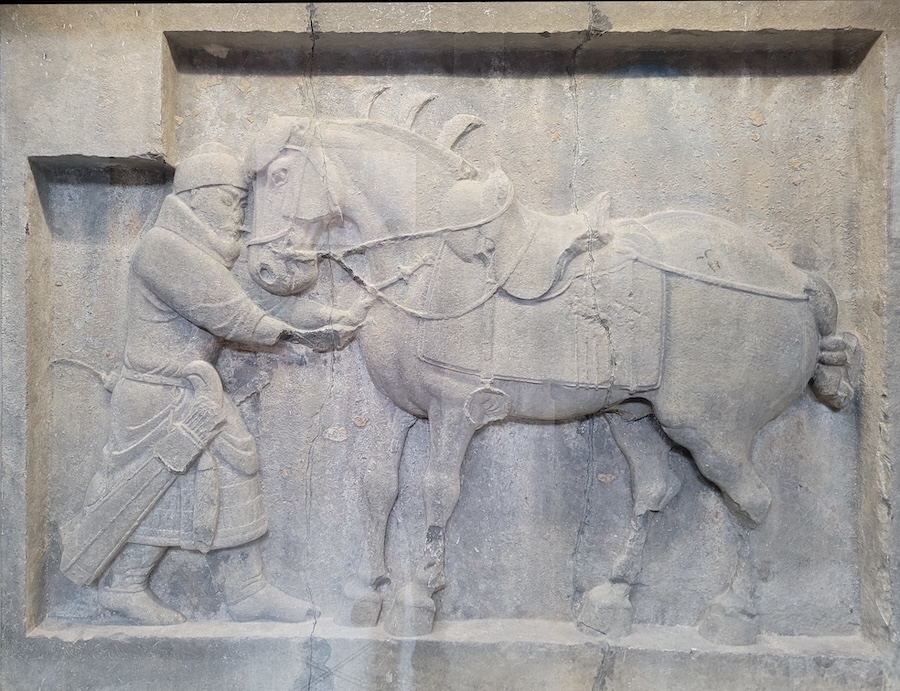Archive for Mixed lanuage
Punjabi word salad
This man is a Punjabi Hindu, speaking some Punjabi, some Hindi, with a lot of English mixed in, so you might be able glean a bit of what he is trying to say (he's being interviewed about a flood).
"Punjab flood: Man got interviewed, but no one could understand him"
Read the rest of this entry »
"The Sway Mo' Blues"
[This is a guest post by Kirinputra.]
By now we know. The secret is out. The “Chinese character” is not as different as 人 thought it was. We know sinographs don’t transcend the plane of sound — not quite like math symbols, anyway, or the man-woman bathroom icons, or stoplights.
How deep is the entanglement, though, between sinographs and sound? In contemplation of this, I present a fun-sized platter of puns and related matter from a seaborne sliver of the Sinosphere thought by some to be a living showcase of peak sinography: Formosa.
In particular, I want to spotlight a subconscious reading mechanism that guts the good of sinography and bends it to shady ends.
Let’s start with Sioumazang Yakiniku, Japanese barbeque chain. Sinographically, the name is 燒肉衆. The Mandarin reading, or name, is straightforward: Shāoròuzhòng. The Taioanese name is more or less undefined, despite the possibilities — for reasons that should be clear by the time we get to the other side of this.
Read the rest of this entry »
Japanese, Chinese, and English mixed language and script
In several recent posts, we've been exposed to a few Japanese speakers who tried to write their language without recourse to kana (the two Japanese syllabaries), i.e., kanji only. I myself thought it was ridiculous / laughable and didn't work well at all.
Now we come across an even more quixotic quest, one where some folks combine Japanese, Chinese, and English languages (lexicons and grammars) and scripts to create a hybrid linguistic amalgam.
Below, I will show several examples of what the resultant combinations look like. I will not translate or transcribe the sample texts, because — even if you don't know all three languages and scripts, you will be able to get an idea of how this experiment works . I will only give a paraphrase of what portions of the texts mean, especially the fourth one, because it is the most overt in declaring its modus operandi.
In actuality, that was my original intention, but I ended up paraphrasing all of the passages, although I'm not entirely certain that I caught the nyuansu ニュアンス ("nuance") of each and every word.
For all the samples, I have endeavored to smooth out the three languages and three scripts into a single English rendering.
Read the rest of this entry »
Turco-Sogdian horses and languages
Reading through Étienne de La Vaissière's massive magnum opus, Asie Centrale 300-850: Des routes et des royaumes (2024), I came to a screeching halt when my gaze alighted on this photograph (III.6, p. 71):

Limestone relief of Saluzi ("Autumn Dew"), one of the Six Steeds of Zhao Mausoleum, along with an unknown human general. The general switched horses with the emperor and cared for Saluzi; he is seen here pulling an arrow out of Saluzi's chest. On display at the Penn Museum in Philadelphia, Pennsylvania. (source)
Read the rest of this entry »
How to say "AI" in Mandarin
An eminent Chinese historian just sent these two sentences to me:
Yǒurén shuō AI zhǐ néng jìsuàn, ér rénlèi néng suànjì. Yīncǐ AI yīdìng bùshì rénlèi duìshǒ
有人說AI只能計算,而人類能算計。因此AI一定不是人類對手。
"Some people say that AI can only calculate, while humans can compute. Therefore, AI must not be a match for humans".
Google Translate, Baidu Fanyi, and Bing Translate all render both jìsuàn 計算 and suànjì 算計 as "calculate". Only DeepL differentiates the two by translating the latter as "do math".
Read the rest of this entry »
Aspects of Maltese linguistics
[Full disclosure: the reason I am so consumed by the Arabic vernaculars is because of their own inherent, intrinsic nature, but I must confess that I'm also preoccupied by their comparative parallelism with the Sinitic "topolects". The workings of both are extremely difficult to comprehend.]
This post is to follow up on VHM's "Arabic and the vernaculars, part 6" (5/12/24) and Mark's "Maltese Arabic: Correction?" (5/13/24), plus J.W. Brewer's excellent first comment to the latter.
Mark ends his post thus: "…it seems entirely wrong to exclude Maltese from a taxonomy of Arabic 'colloquials' or 'vernaculars' (i.e. Arabic languages), purely on the grounds of its borrowings from Italian." I would not want to do that.
To provide for a more nuanced evaluation of the position of Maltese vis-à-vis the Arabic vernaculars, below I cite several scholarly accounts of the subject and related issues. Extensive coverage of the history of the languages on Malta is provided.
Maltese language, Semitic language of the Southern Central group spoken on the island of Malta. Maltese developed from a dialect of Arabic and is closely related to the western Arabic dialects of Algeria and Tunisia. Strongly influenced by the Sicilian language (spoken in Sicily), Maltese is the only form of Arabic to be written in the Latin alphabet."
That's the bare bones. As we shall find in the following paragraphs, the complexities of Maltese are far greater than can be told in such a capsule description.
Read the rest of this entry »
Franglais freaks Quebec
Language remains a hot button across Canada — Vipal Monga, Quebec’s ‘Language Police’ Take Aim at Sneaky English Slang, WSJ (12/13/23):
Authorities fret over ‘Franglais,’ the creep of words like ‘cool’ or ‘email’ into French discourse; even elevator music is scrutinized.
Read the rest of this entry »
TMD and LPM: a tale of five 'mothers'
[This is a guest post by Conal Boyce]
A tale of five mothers, two of whom got rich, one of whom became infamous,
and two of whom were to meet each other later in the bilingual alphabet soup shown below.
(Suitable for playing "This little piggy went to market, and this little piggy…"?)
Read the rest of this entry »
Permalink Comments off
Colloquial Cantonese and Taiwanese as mélange languages
Charles Belov writes:
My understanding was that Hong Kong newspapers, newscasts, and popular Cantonese songs use literary Chinese exclusively while Hong Kong star magazines and Cantonese hip-hop (e.g., LMF, Softhard) use colloquial Cantonese exclusively. But today as I was walking along, an old Beyond song, 俾面派对, was earworming me and it suddenly hit me that, unlike most Cantonese songs, and like Cantonese hip-hop, which it isn't, it includes colloquial Cantonese, specifically 唔 and 佢 (and, as it turns out, "D").
Read the rest of this entry »



